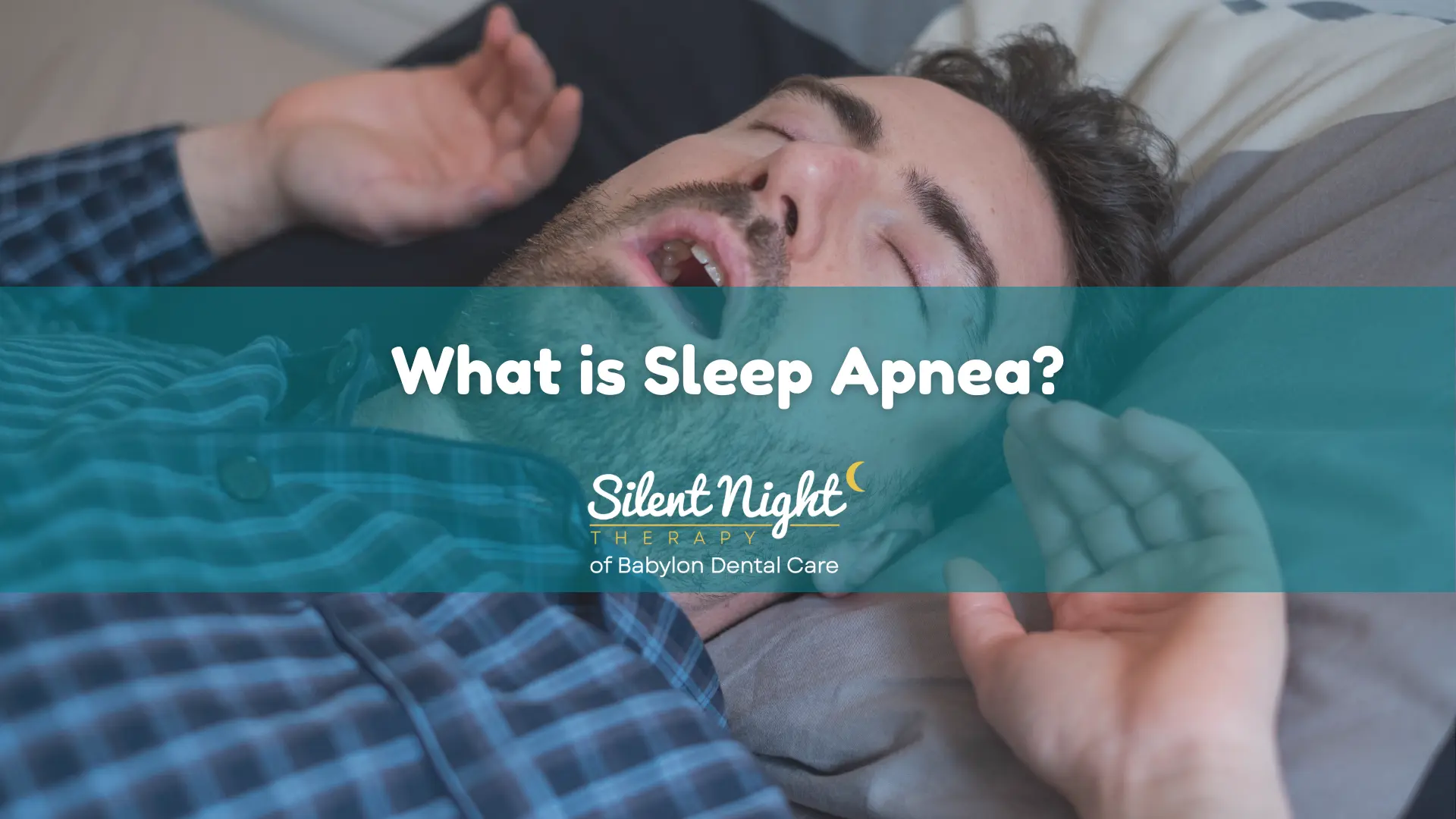
Sleep apnea is a severe sleep disorder that occurs when a person’s breathing gets interrupted during sleep. People with untreated sleep apnea experience repeated episodes of interrupted breathing during sleep. These episodes can last for a few seconds to several minutes. Some people have these episodes hundreds of times per night, which is extremely dangerous.
Dynamic Toc Test
Sleep Apnea Self Quiz
- Do you find yourself snoring loudly at night?
- Do you ever wake up choking or gasping?
- Do you frequently wake with a dry or sore throat?
- Do you experience daytime sleepiness, mood changes, forgetfulness, or decreased libido?
If you answered “yes” to any of these questions, you might have sleep apnea.
When someone
stops breathing in their sleep, the brain — and the rest of the body — might not get enough oxygen. Our bodies run on oxygen, and lack of oxygen can have severe mental and physical consequences. Many patients come to us seeking solutions after struggling with the harmful effects of sleep apnea for years.
There are three types of sleep apnea:
obstructive sleep apnea, central sleep apnea, and mixed sleep apnea. Obstructive sleep apnea and central sleep apnea are the two most common types. Obstructive sleep apnea (OSA) is the more common of those two.
OSA develops due to airway blockages. This usually happens when the soft tissue in the back of the throat collapses during sleep.
Central sleep apnea (CSA), a less common form, is not caused by blockages like OSA. It happens when the brain fails to signal the muscles to breathe due to instability in the respiratory control center. The third type of sleep apnea is “mixed,” a combination of central and obstructive apnea events. This is a relatively rare type of sleep apnea.
When airways become obstructed during sleep, the
heart must work harder to compensate for a lack of oxygen in the blood. This increase in heart rate can carry over during the day, causing persistent elevated blood pressure.
All forms of sleep apnea are severe and dangerous. They must be diagnosed and treated promptly to help get you back to the
healthy life you deserve.
Quality sleep is the cornerstone of good health. When something like sleep apnea interrupts or impairs your sleep, you’re going to suffer. You don’t deserve that. It’s time to take your life back, and
Silent Night Therapy can help.
Check out our patient reviews and see why so many choose us for sleep apnea treatment.
Luckily, there are several ways we can get you the help you need, and we can get started right away. Schedule a
complimentary consultation with
Dr. Brown today to learn more about your treatment options.
 Sleep apnea is a severe sleep disorder that occurs when a person’s breathing gets interrupted during sleep. People with untreated sleep apnea experience repeated episodes of interrupted breathing during sleep. These episodes can last for a few seconds to several minutes. Some people have these episodes hundreds of times per night, which is extremely dangerous.
Dynamic Toc Test
Sleep apnea is a severe sleep disorder that occurs when a person’s breathing gets interrupted during sleep. People with untreated sleep apnea experience repeated episodes of interrupted breathing during sleep. These episodes can last for a few seconds to several minutes. Some people have these episodes hundreds of times per night, which is extremely dangerous.
Dynamic Toc Test